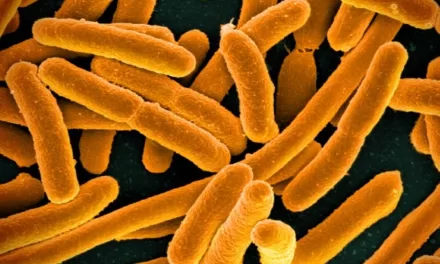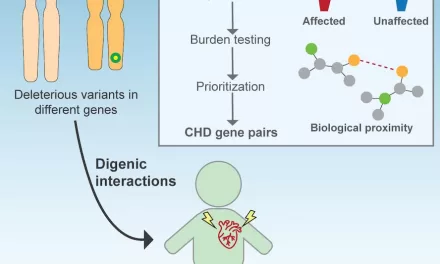Situation at a Glance
Description of the Situation
On 16 January 2024, the Brazil National Focal Point (NFP) for International Health Regulations (IHR), notified the World Health Organization of a human infection with a swine-origin influenza A(H1N1)v virus.
The patient is an adult male, with underlying medical conditions, who resides in the municipality of Toledo, in the State of Paraná. The man, who lives alone, had no history of exposure to pigs or to any ill individuals. From the epidemiological investigation, no close contacts were identified.
The patient first developed symptoms on 12 December 2023, including fever, headache, fatigue and cough, and sought medical assistance on 16 December 2023, when he was hospitalized. He did not receive antiviral treatment but fully recovered on 18 December 2023, when he was discharged from the hospital.
A sample was sent on 19 December 2023 to the Central Public Health Laboratory of the State of Paraná for analysis of influenza and SARS-CoV-2. The sample was subtyped as influenza A/H1 virus by real-time polymerase chain reaction (RT-PCR). On 11 January 2024, the sample was sent for confirmation to the National Influenza Center (NIC), National Reference Laboratory for respiratory viruses of FIOCRUZ, Rio de Janeiro, where on 15 January 2024, influenza A (H1N1) variant virus was confirmed.
According to the sequencing results, the virus shares 99% similarity with the A/Paraná/ 20675/2022 (A/H1N1pdm09-like) virus previously detected in a human case from the city of Toledo-Paraná in October 2022. The segments PB2, PB1, PA, NA, and MP corresponded to the virus A/Paraná/10835/2021 (A/H1N1pdm09-like) also reported in the city of Toledo, and the NP and NS segments corresponded to the virus A/Paraná/44706/2022 (A/H3N2v) reported in the city of Santa Helena, also in the state of Paraná. On 1 February 2024, the NIC sent the sample to the US Centers for Disease Control and Prevention (US CDC) Influenza Division – a WHO Collaborating Centre (CC) for Surveillance, Epidemiology, and Control of Influenza – for further characterization.
These laboratory findings might indicate ongoing spread of the virus in the animal population and exposure of the human population in the state of Paraná. Community transmission in humans has not been identified.
Epidemiology
Influenza A(H1) viruses are enzootic in swine populations in most regions of the world. When an influenza virus that normally circulates in swine is detected in a person, it is called a “variant influenza virus”. A(H1N1), A(H1N2) and A(H3N2) are major subtypes of swine influenza A viruses in pigs and occasionally infect humans, usually after direct or indirect exposure of humans to pigs or contaminated environments. Human infections with variant viruses tend to result in mild clinical illness, although some cases have been hospitalized with more severe disease and some have been fatal.
To date, sporadic human infections caused by influenza A(H1N1), A(H1N2), and A(H3N2) variant viruses have been reported in Brazil, but there has been no evidence of sustained human-to-human transmission.
This is the first human infection with an influenza A(H1N1)v virus reported in Brazil in 2024. This case is the fourth human infection with Influenza A(H1N1)v reported in the country and the ninth human case of infection with a swine variant virus reported in the state of Paraná, Brazil, since 2015.
Previously in the state of Paraná, eight human infections with swine variant viruses have been reported, comprising influenza A(H1N1)v (one case each in 2021, 2022 and 2023), influenza A(H1N2)v (one case in 2015, and two cases in 2020) and influenza A(H3N2)v (two cases in 2021). All cases lived in rural areas with pig farms, one lived close to a pig farm, and one worked in a pig slaughterhouse. Among these previous eight cases, one death was recorded.
Public Health Response
- Conducting an epidemiological investigation.
- Monitoring influenza-like illness (ILI) and severe acute respiratory infections (SARI) in surrounding municipalities within the same health region, seeking to analyze the trends of respiratory viruses in the region, with a focus on influenza.
- Laboratory investigation of respiratory samples collected in the municipality of Toledo, from one month before to one month after the onset of symptoms of the current case.
WHO Risk Assessment
This is the first human infection with an influenza A(H1N1)v virus reported in Brazil in 2024. The patient had no history of exposure to pigs or any ill individuals. Based on currently available information, this represents a sporadic case and further spread has not been detected.
Limited, non-sustained human-to-human transmission of variant influenza viruses has been described, although ongoing community transmission has never been identified. Current evidence suggests that these viruses have not acquired the ability to sustain transmission among humans.
There is no vaccine for Influenza A(H1N1)v infection currently licensed for use in humans. Seasonal influenza vaccines against human influenza viruses are generally not expected to protect people from infection with influenza viruses that normally circulate in pigs, but they can reduce severity.
WHO assesses the risk of international disease spread through humans and/or community-level spread among humans posed by this event as low. The risk assessment will be reviewed should further epidemiological or virological information become available.
WHO Advice
Surveillance:
- This case does not change the current WHO recommendations on public health measures and surveillance of seasonal influenza.
- Due to the constantly evolving nature of influenza viruses, WHO continues to stress the importance of global surveillance to detect virological, epidemiological and clinical changes associated with circulating influenza viruses that may affect human (or animal) health and timely virus sharing for risk assessment.
- Continued vigilance is needed within affected and neighbouring areas to detect infections in animals and humans. Collaboration between the animal and human health sectors is essential. As the extent of influenza viruses circulating in animals is unclear, epidemiologic and virologic surveillance and the follow-up of suspected human cases should continue systematically. Guidance on the investigation of non-seasonal influenza and other emerging acute respiratory diseases is available on the WHO website.
- Vigilance for the emergence of novel influenza viruses of pandemic potential should be maintained. WHO has developed practical guidance for integrated surveillance in the context of the cocirculation of SARS-CoV-2 and influenza viruses.
- It is critical that influenza viruses from animals or from people be fully characterized in appropriate animal or human health influenza reference laboratories. Under WHO’s Pandemic Influenza Preparedness (PIP) Framework, Member States are expected to share influenza viruses with pandemic potential on a regular and timely basis through the Global Influenza Surveillance and Response System (GISRS).
Notification and investigation:
- All human infections caused by a novel influenza subtype are notifiable under the IHR, and States Parties to the IHR are required to immediately notify WHO of any laboratory-confirmed case of a recent human infection caused by an influenza A virus with the potential to cause a pandemic. Evidence of illness is not required for this report.
- In the case of a confirmed or suspected human infection caused by a novel influenza virus with pandemic potential, including a variant virus, a thorough epidemiologic investigation of history of exposure to animals, of travel, and contact tracing should be conducted. The epidemiologic investigation should include early identification of unusual respiratory disease events that could indicate person-to-person transmission of the novel virus. Clinical samples collected from the time and place that the case occurred should be tested and sent to a WHO Collaborating Centre for further characterization.
Travel and trade:
- WHO does not recommend any travel and/or trade restrictions for Brazil based on available information on this event.
Prevention measures for travelers:
- WHO advises that travelers to countries with known outbreaks of animal influenza avoid farms, contact with animals in live animal markets, entering areas where animals may be slaughtered, or contact with any surfaces that appear to be contaminated with animal excreta. Travelers should also wash their hands often with soap and water. All individuals should follow good food safety and hygiene practices.
- WHO does not advise special traveler restrictions or screening at points of entry with regard to the current situation of influenza viruses at the human-animal interface.
Further Information
- PAHO/WHO. Influenza at the Human-Animal Interface: PAHO Recommendations to Strengthen Intersectoral Work for Surveillance, Early Detection, and Investigation, 9 July 2020.
- PAHO/WHO. Strengthening the intersectoral work for Influenza at the Human Animal Interface in the Region of the Americas: Technical Questions and Answers. May 2023
- PAHO/WHO. Report of the Regional Consultation for the Strengthening of Intersectoral Work in the Human-Animal Interface of Influenza. March 2023 – PAHO/WHO | Pan American Health Organization
- World Health Organization. Zoonotic Influenza Outbreak Toolbox. September 2019.
- World Health Organization (16 June 2023). Disease Outbreak News; Influenza A(H1N1) variant virus – Brazil. Available at: https://www.who.int/emergencies/disease-outbreak-news/item/2023-DON473
- WHO Global Influenza Programme
- International Health Regulations (2005) – Third edition. January 2016.
- World Health Organization. (2011). Manual for the laboratory diagnosis and virological surveillance of influenza. World Health Organization. https://iris.who.int/handle/10665/44518
- WHO. Terms of Reference for National Influenza Centers of the Global Influenza Surveillance and Response System.
- WHO. Protocol to investigate non-seasonal influenza and other emerging acute respiratory diseases.
Citable reference: World Health Organization (7 February 2024). Disease Outbreak News; Influenza A(H1N1) variant virus – Brazil. Available at: https://www.who.int/emergencies/disease-outbreak-news/item/2024-DON502












